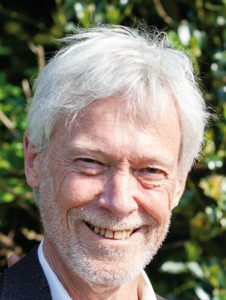Within the Ministry of Health, MCNV has close cooperation with the Department of Treatment for the work on disability,
Ministry of Education & Training – Vietnam
The Ministry of Education and Training has mainly been a partner in the field of inclusive education,
Ministry of Labour-Invalids and Social Affairs – Vietnam
The Ministry of Labour, Invalids and Social Affairs is a partner in the social side of services to the disabled.
Provincial Hospital – Lao
MCNV has been working with this partner to build the capacity of the organisation and increase the skills of health care professionals.
Provincial Health Department – Lao
The main role of this organisation is to oversee the health care of all the communities in the province. MCNV has built a strong relationship with the Provincial Health Department in Savannakhet since 2008.
Women’s Union – Vietnam
The Vietnam Women’s Union is one of the most important partners in MCNV development programs in Vietnam, at all levels.
Women’s Union – Lao
The Lao Women’s Union is a close partner of MCNV, helping to promote gender equality throughout the whole district.
Local NGOs and CBOs – Vietnam
In Vietnam, MCNV also actively cooperates with local non-governmental organisations (NGOs) and community-based organisations (CBOs).
Local Authorities – Vietnam
The official partner in MCNV’s CMHLD program in Khanh Vinh district, Khanh Hoa province, is the District People’s Committee.
Biogas in the memory of a donor
Tom Fluitsma is an MCNV donor and has been an active volunteer from 1999 onwards, as an editor of MCNV Magazine and as a tour leader of donor travels. He has often traveled in Vietnam, with and without donors. This year he writes columns about special memories of the times he was there.

Mr. Tom Fluitsma, MCNV’s donor
Biogas
November 1999. My first visit to Vietnam. Of course, we also visit the Mekong Delta for a few days. Our travel guide takes us to tourist sights. Sometimes he adds a small surprise to our program. For example, we visit a small farming village in the delta. We walk into the yard of a family and are warmly welcomed in their wooden house. There are a few large pigs in a pen next to the house. We exchange some courtesies and the guide translates: ‘You are welcome in our house. Take some of the fruit on the table’, ‘Thank you so much, kind of you to receive us’. In the meantime, I can’t keep my eyes off a giant plastic bag hanging under the roof of the house.
Pigs. In the Netherlands we like pork chops or bacon. We keep a lot of pigs for that, about 12.5 million. The manure of all these pigs is useful in agriculture, but it also produces a lot of greenhouse gases. We can hardly use that with global warming going on. No surprise, therefore, that this topic gets attention in the draft climate agreement. One of the many documents associated with this agreement contains the following proposal: ‘Processing and valorization of all fresh pig manure in closed regional clusters into green energy, substitutes for fossil fertilizer and valuable fertilizers’.
Biogas. In Vietnam there are 4 million pig farmers. There are differences between Vietnam and the Netherlands, but one thing is the same: Vietnamese pigs also produce manure and that manure also produces a lot of greenhouse gases. In November 2018, an interesting article was published in our NRC newspaper about a study into the extent to which countries succeed in offering their population a good standard of living, without exceeding ecological limits. Vietnam does relatively well in that study. Nice detail: almost 10% of pig farmers have a biogas installation. The article reminds me of my visit to Vietnam in 1999.
Back to the Mekong Delta, November 1999. I’m still looking at that giant plastic bag hanging under the roof. Our guide notices. That was exactly his intention, he didn’t take us to this family for nothing. He no longer leaves me in suspense: “This farmer has a few pigs. He collects the manure in the sealed container that you see there. He leads the biogases that are released upwards into the big bag in that thick plastic hose. At the back of the bag a black tube goes to the gas burner in the kitchen. This is how this family cooks, on free gas’. A special place of interest, off the beaten tourist paths. That was in 1999. Now, twenty years later, there are 350.000 pig farmers in Vietnam with an installation like that. As far as I know, Vietnam does not have a climate agreement, but the pig farmers there are well on their way to ‘processing and upgrading all fresh pig manure in closed region clusters into green energy’.




